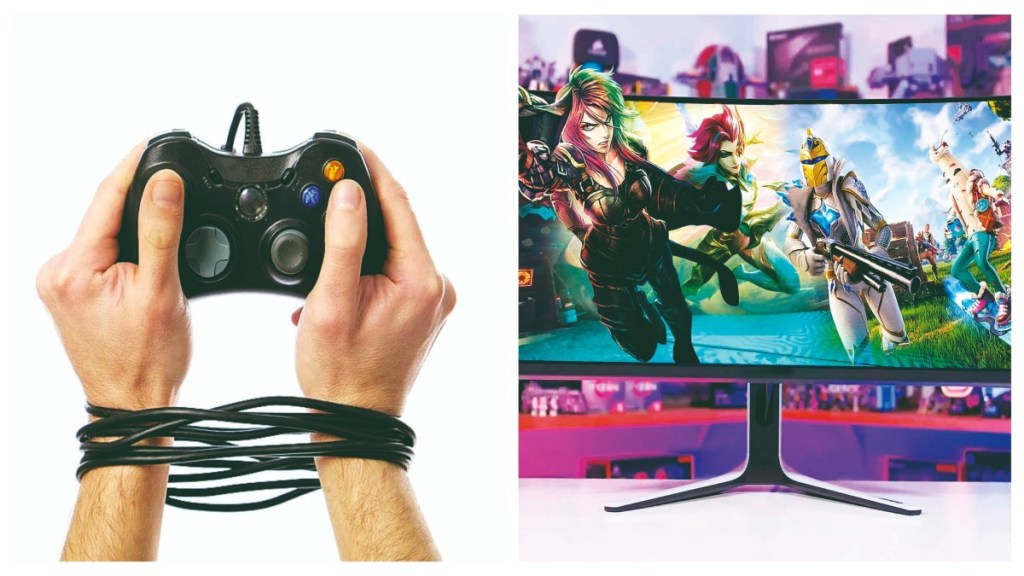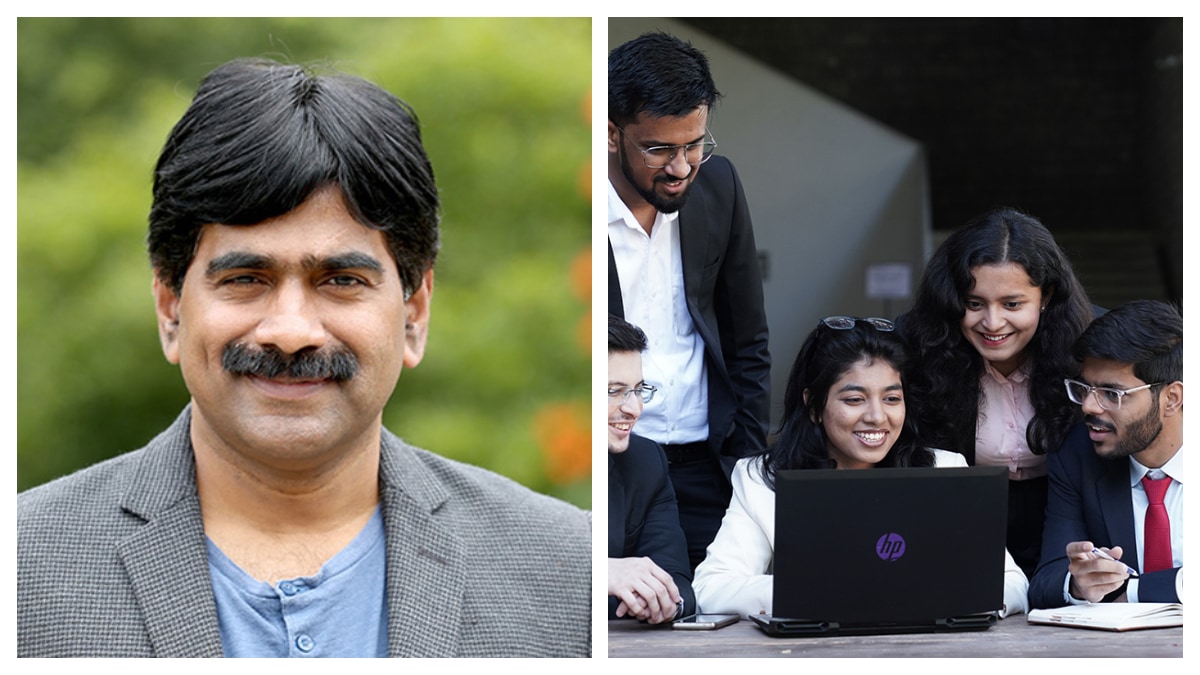When we talk about ‘addiction’, the first thing that probably comes to our mind is substance abuse, or the excessive use of alcohol, pain medications or illegal drugs in a way that is detrimental to self, society, or both. However, another ‘addiction’ that is drawing increasing concern is that of online gaming – so much so that the WHO recognised it as a mental health condition in 2018.
Furthermore, the issue assumes greater significance in a country like India, which is now home to 20% of the global gamer population, with 591 million individuals playing games across platforms, according to a report published by the Interactive Entertainment and Innovation Council, a community-based platform to facilitate growth and innovation within the interactive media, tech and entertainment ecosystem, earlier this year.
Clinically, the condition is known as Internet Gaming Disorder or IGD, and psychologists are increasingly diagnosing children – especially school-going – with it when faced with telltale signs in their behaviours, leading to an impact on their overall health.
Causes and effects
According to Dr Umar Mashir, senior consultant, department of psychiatry, Apollo Medics Superspecialty Hospital, Lucknow, “Among Indian school children, the incidence of IGD is about 3.5%, though male students are much more adversely affected – 8.8% against 0.8% of females.”
While excessive gaming largely leads to disordered sleep, emotional dysregulation, social withdrawal, depression, anxiety, and lost productivity at work in adults, the telltale signs are not quite the same in children. “Sleep related issues, low school performance, loneliness, aggression, and lower emotional intelligence development are marked among children with gaming addiction,” says Dr Mashir, adding: “These children can also have physical conditions like obesity, back pain, and eye problems because of sitting for long hours and extensive screen exposure.”
Certain symptoms are common between adult and child addicts of gaming. These include irritability, anxiety or depression when gaming is not available, extreme gaming for up to 8-10 hours a day and tendencies of lying, deception, hopelessness and aggression when gaming avenues are removed. “Children may suffer from delayed cognitive and language development with physical issues as well” Dr Mashir adds.
“If we don’t check internet gaming addiction, it’s going to cause a lot of physical, mental, social and financial health disasters,” says Dr Jaya Sukul, clinical psychologist and founder of Headspace Healing in Noida. “IGD is characterised by severe engagement in online gaming, and a habit is only considered an addiction when there is a significant amount of impairment in daily life.” And that’s where medical and psychological interventions are heavily recommended, in the form of therapy or medications, she says.
Government intervention
The Government of India has more than once issued formal statements regarding the possible drawbacks of rampant paid and unpaid online gaming platforms. The latest of these cautionary guidelines came in 2024, even ahead of the ban on online gambling.
In 2024, the Department of Electronics and Information Technology as well as the Ministry of Education jointly issued a statement detailing the steps taken by the government to protect children from the negative impacts of online gaming.
It read, “The government is cognizant of the risks posed by online gaming and potential harms like addiction. The policies of the Government of India are aimed at ensuring a safe, trusted and accountable Internet for its users.”
An advisory released by the Ministry of Education earlier in 2021, for parents and school teachers, stated that “playing online games leads to a serious gaming addiction which has been considered as a gaming disorder”.In 2020, the Ministry of Information and Broadcasting had also issued a guideline saying that no advertisement for online gaming, etc, could feature a child below the age of 18 years.
Most commonly affected
Experts across the board share that online gaming addiction is most commonly found among young school and college going boys.
“Gaming addiction is more of a global disorder now. India is also getting swept up in increased numbers ,” says Dr Sukul, adding, “I think this number is only going to become worse before it actually becomes better.” “Most of the gaming addiction patients are kids, boys in particular, because they have more access to video games . There’s almost a 4-5% increase in the number in the district of Kanchipuram in Tamil Nadu alone. University students’ prevalence is increasing where students almost up to 20 years of age are also getting addicted,” she adds.
Dr Mashir echoes a similar experience. “In my OPD clinic, we do see more children than adults brought by concerned parents.” “The greatest challenge in the treatment of gaming addiction is the absence of firmly established long-term effective treatment protocols and the multifaceted task of treating both the behavioural addiction and the underlying or comorbid mental illness,” he says, adding that a significant additional challenge is the patient’s noncompliance to treatment, which is also extremely crucial because the treatment for this is prolonged in duration. Dr Mashir says that different evidence-based treatments are prescribed for different patients. He cites examples like cognitive behavioural therapy (CBT), counselling (individual and group), mindfulness, and stress management practices to change negative gaming habits and address the actual emotional or psychological causes.
Dr Sukul says that doctors are seeing a “remarkable decline in cognitive functions like attention and concentration” which can be attributed to such habits of continuous gaming amongst children. These gaming platforms and fantasy football and cricket leagues not only open up avenues for social anxiety and isolation, but also make way for cyber bullying in many instances.
From her experience in treating patients dealing with such addictions, she informs, “Currently, we’re seeing around three to four cases per week specifically for internet gaming addiction that are coming into the clinic, whereas I think 70% of children who come up, the parents have a concern about excessive use of screen, and excessive use of gaming as a tool.”
Prevention begins at home
Doctors say that preventive measures to children developing gaming addiction start at the home, with monitoring the child’s habits, behavioural patterns and lifestyle. Dr Sukul opines: “Given how often children spend time on screens, it’s almost like a third parent now.” “We can attempt to curb the development of these habits on the home front by maintaining tight boundaries, cultivating healthier habits and hobbies, and also seeking support to regain control over gaming habits,” says Dr Mashir. “Moreover, acquiring new stress-relief activities like meditation, exercise, or creative hobbies can also help minimise dependence on gaming as an activity for relaxation,” he advises, adding: “If self-management is problematic, seeking professionals is advised to solve underlying issues of addiction and sustain long-term recovery.”
Centres like Lotus Rehabilitation Centre and Alpha Healing Centre offer packages costing about Rs 1 lakh to Rs 3 lakh a month to start and can go up to Rs 6 lakhs or more – depending on the treatment plan and the duration of stay at the centre. These centres are naturally not affordable for the general public.
“Larger scale interventions are required right from schooling and university level,” says Dr Sukul. “Digital detox should be a part of the school curriculum ,” she adds. “A lot of systemic changes are required to erode these problems.”
Addiction symptoms
In adults: Disordered sleep, emotional dysregulation, social withdrawal, depression, anxiety, lost productivity at work
In children: Obesity, back pain, eye problems from screen exposure, low school performance, loneliness, aggression, lower emotional intelligence development
Preventive measures
- Digital detox as part of school curriculum
- Introducing alternative hobbies at home & outside
- Indulging in stress relieving activities, exercises
- Seeking psychiatric assistance from professionals
Withdrawal symptoms
- Irritability
- Anxiety
- Depression
- Tendencies of lying
- Deception
- Hopelessness
- Aggression, when gaming avenues are not available for 8-10 hours of the day








